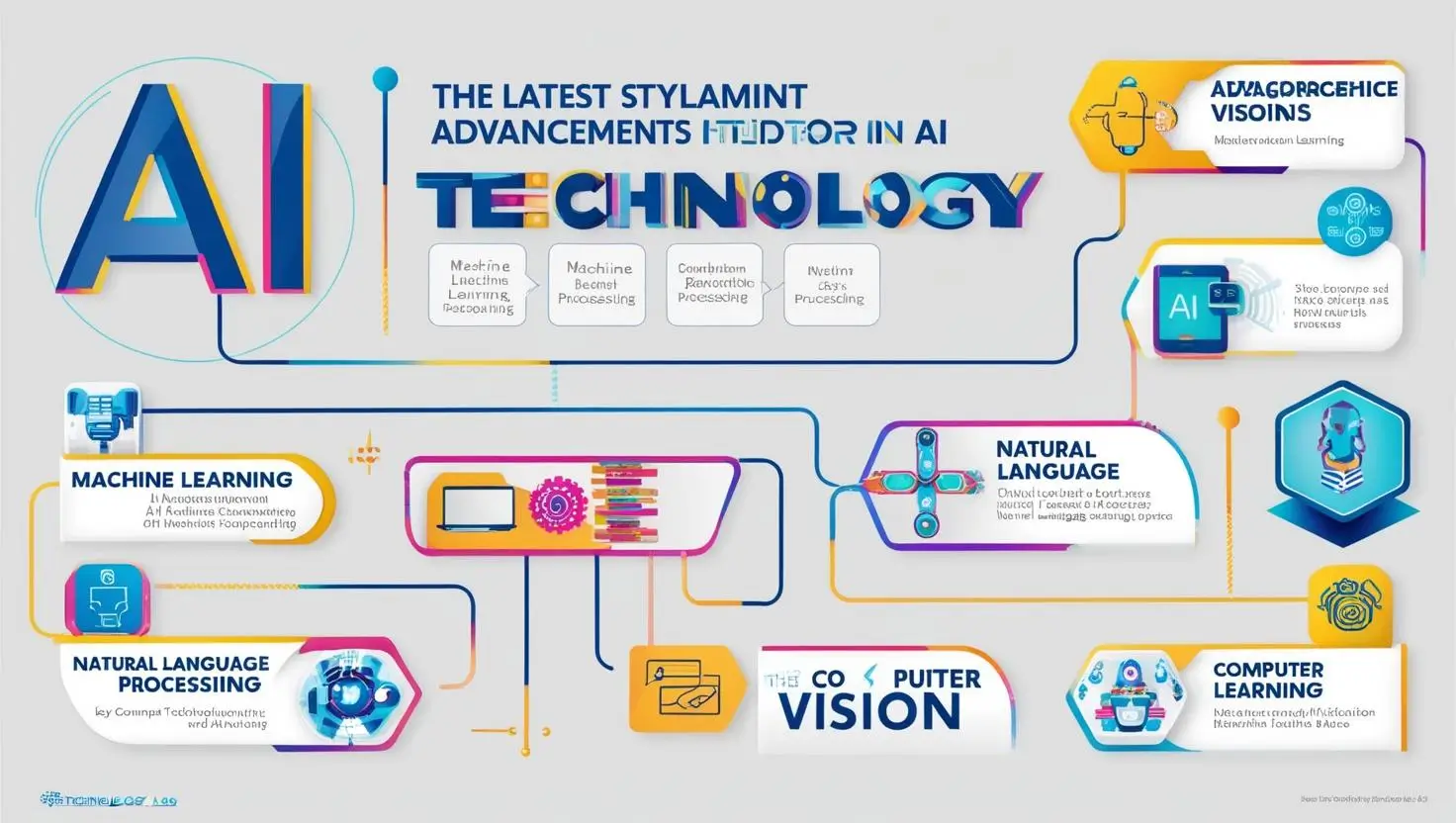Artificial intelligence (AI) has revolutionized the modern world, driving innovation across industries and reshaping the way we interact with technology. From voice assistants to autonomous vehicles, AI continues to push boundaries, with cutting-edge advancements emerging every year. In this article, we delve into the latest developments in AI technology, exploring their significance, applications, and impact on society.
What is Artificial Intelligence?
AI refers to the simulation of human intelligence in machines that are programmed to think, learn, and make decisions. It encompasses various subfields, including machine learning (ML), natural language processing (NLP), computer vision, and robotics. The primary goal of AI is to enable systems to perform tasks that traditionally require human intelligence.
Recent Breakthroughs in AI Technology
The AI landscape has witnessed groundbreaking developments in recent years. Here are some of the most noteworthy advancements:
Generative AI Models
- GPT-4 and Beyond: Advanced language models like OpenAI’s GPT-4 have redefined natural language processing. These models can:
- Generate human-like text.
- Write code.
- Provide customer support.
- Applications: Content creation, chatbots, and virtual assistants.
Multimodal AI
- Definition: AI systems that integrate multiple data types (e.g., text, images, audio).
- Example: OpenAI’s DALL•2 combines text inputs with image generation, enabling users to create visuals from descriptions.
- Applications: Healthcare diagnostics, creative industries, and education.
AI in Healthcare
- Precision Medicine: AI models analyze patient data to recommend personalized treatments.
- Drug Discovery: Companies like DeepMind leverage AI for faster drug development.
- Diagnostic Tools: AI-powered systems detect diseases such as cancer and Alzheimer’s with high accuracy.
Autonomous Systems
- Self-Driving Cars: Companies like Tesla, Waymo, and Baidu have made significant strides in autonomous vehicle technology.
- Drones and Robots: AI-enabled drones perform tasks like delivery, surveillance, and disaster response.
Ethical AI and Fairness
- AI researchers are focusing on:
- Bias detection and mitigation.
- Transparent decision-making processes.
- Tools like Explainable AI (XAI) to enhance accountability.
Why is AI Technology Important?
AI’s significance lies in its ability to:
- Automate Repetitive Tasks: Boost productivity by handling mundane tasks.
- Enhance Decision-Making: Provide data-driven insights for informed decisions.
- Improve Accessibility: Assist individuals with disabilities through tools like speech-to-text and real-time translation.
- Drive Innovation: Enable breakthroughs in fields such as medicine, climate research, and education.
Real-World Applications of the Latest AI Technology
Business and Marketing
- Chatbots: AI-driven chatbots handle customer inquiries 24/7.
- Predictive Analytics: Tools like Salesforce Einstein predict customer behavior.
- Content Generation: Platforms such as Jasper AI create marketing materials.
Education
- Personalized Learning: AI tutors adapt to student learning styles.
- Content Creation: Tools like Quizlet use AI to generate study materials.
Entertainment
- Content Recommendation: Streaming platforms use AI algorithms to suggest personalized content.
- Gaming: AI enhances game realism and adapts difficulty levels.
Read it: How Smartphone Cameras Work: The Technology Behind the Lens
Environmental Sustainability
- Energy Efficiency: AI optimizes energy use in smart grids.
- Climate Predictions: AI models forecast climate patterns to aid in disaster management.
Challenges and Concerns in AI Technology
Despite its benefits, AI presents challenges that require attention:
- Ethical Concerns: Issues related to bias, privacy, and surveillance.
- Job Displacement: Automation threatens jobs in certain sectors.
- Data Dependency: AI relies heavily on high-quality data, which is not always accessible.
- Security Risks: Malicious actors can misuse AI for cyberattacks or misinformation campaigns.
The Future of AI Technology
AI Democratization
- Open-source frameworks and affordable AI tools will make technology accessible to small businesses and individuals.
Human-AI Collaboration
- AI will augment human capabilities rather than replace them, fostering collaborative workflows.
Enhanced General AI
- Researchers are working toward Artificial General Intelligence (AGI), systems capable of performing any intellectual task.
Regulations and Policies
- Governments and organizations are formulating guidelines to ensure ethical AI development and deployment.
Conclusion
The latest advancements in AI technology demonstrate its transformative potential across industries. From generative models to autonomous systems, AI is shaping a future of innovation, efficiency, and accessibility.
However, addressing ethical concerns and fostering responsible development will be crucial to unlocking AI’s full potential.
As AI continues to evolve, staying informed about the latest trends and breakthroughs will empower businesses and individuals to harness its capabilities effectively. By embracing AI responsibly, we can pave the way for a smarter and more inclusive future.
